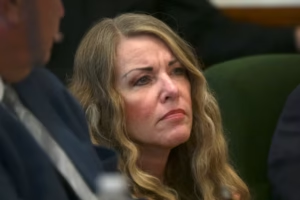Republicans Break Ranks Over White House Signal Messages
The recent White House Signal chat leak has sparked a major political divide, with Republicans breaking ranks over the administration’s handling of the situation. The controversy erupted when a journalist was mistakenly added to a secure Signal group chat discussing classified military operations. This security lapse has led to intense political debates, calls for an investigation, and concerns over national security protocols.
The Signal Chat Breach: What Happened?
To understand the impact of this breach, it is essential to examine the sequence of events:
| Date | Event |
|---|---|
| March 10, 2025 | National Security Adviser Michael Waltz mistakenly adds The Atlantic’s editor-in-chief, Jeffrey Goldberg, to a White House Signal chat. |
| March 11, 2025 | The chat, titled “Houthi PC small group,” contains discussions about military operations in Yemen. |
| March 12, 2025 | Goldberg realizes the nature of the group and privately alerts White House officials. |
| March 13, 2025 | The Atlantic publishes a report on the breach, revealing the details. |
| March 14, 2025 | The White House releases a statement downplaying the incident, but some Republicans demand an investigation. |
The leak has raised serious concerns about how classified communications are handled, leading to calls for stricter security measures.
Republican Response: A Party Divided
The Republican Party is split on how to react to the White House Signal breach. Here’s a breakdown of the two main viewpoints:
1. Calls for Investigation
- Who Supports It? Senator Roger Wicker, Senate Armed Services Committee members
- Key Concerns:
- How did the mistake happen?
- Was any classified information leaked?
- What changes need to be made to prevent future breaches?
2. Dismissive Attitudes
- Who Supports It? Congressman Troy Nehls, some House Republicans
- Key Arguments:
- The breach was accidental and no harm was done.
- Investigating this will waste government resources.
- The media is exaggerating the incident for political gain.
This divide within the Republican Party reflects broader disagreements over national security oversight.
White House’s Response and Shifting Explanations
Initially, President Trump’s administration tried to dismiss the incident. The timeline of the White House’s response shows an evolving stance:
| Date | White House Response |
| March 14, 2025 | A junior staff member was blamed for the mistake. |
| March 15, 2025 | National Security Adviser Michael Waltz admitted responsibility. |
| March 16, 2025 | President Trump defended his team, calling the breach “overblown.” |
| March 17, 2025 | Officials announced plans to review security measures for future communications. |
Despite the controversy, the administration has resisted launching an internal investigation.
Democrats Push for Accountability
Democratic leaders see this breach as evidence of security negligence. Senator Amy Klobuchar and others have called for a full inquiry, arguing that:
- The administration must be transparent about its security failures.
- Signal and similar apps should not be used for highly classified discussions.
- The public deserves to know if national security was compromised.
The pressure from Democrats adds to the growing scrutiny over the White House’s handling of sensitive information.
The Bigger Picture: National Security Implications
This incident highlights deeper concerns regarding national security. Experts warn that:
- Messaging apps like Signal are not designed for classified discussions.
- Accidental leaks can expose military strategies to adversaries.
- Proper training is needed for officials handling secure communications.
A better approach would be using government-approved encrypted platforms that offer stronger safeguards against human errors.
Secure Communication vs. Security Risks
[Secure Government Communication]
|
---------------------------------
| |
[Encrypted Channels] [Security Risks]
| |
[Government-approved apps] [Data leaks]
[Multi-layered security] [Hacking threats]
[Access control] [Foreign espionage]Conclusion: What Comes Next?
As the political pressure builds, several possible outcomes could follow:
- A Formal Investigation – If bipartisan support grows, an inquiry into security protocols may be launched.
- Policy Changes – The White House might revise its communication protocols to prevent future breaches.
- No Major Action – If public interest wanes, the issue may fade without significant consequences.
The final resolution will depend on how much momentum the controversy gains in the coming weeks.





